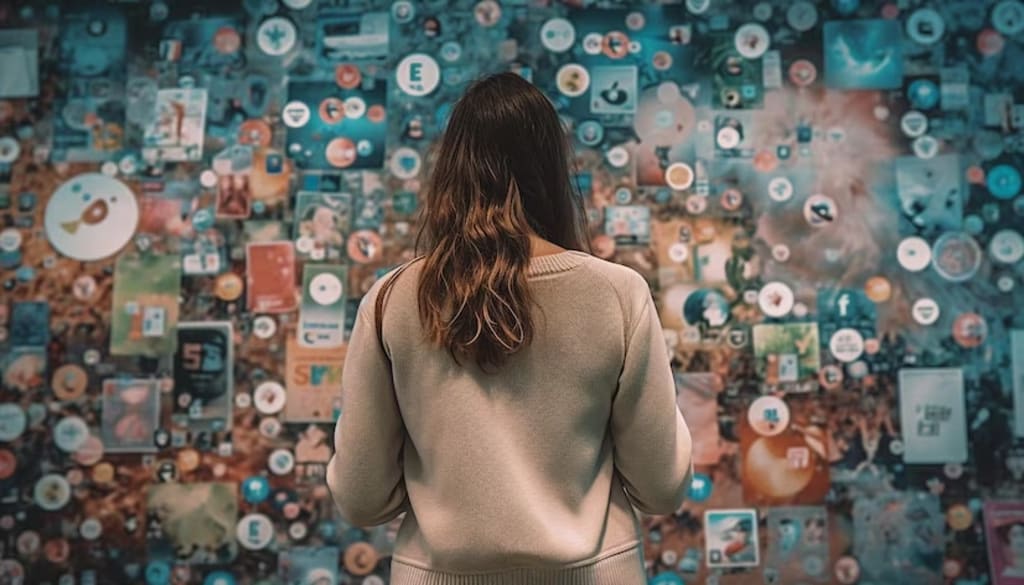The Influence of Social Media in Contemporary Society: Transforming the Way We Connect and Perceive the World
Social Media in Contemporary Society

Social media has become an integral part of our contemporary society, revolutionizing the way we communicate, share information, and perceive the world around us. Platforms such as Facebook, Instagram, Twitter, and YouTube have transformed the dynamics of social interactions, media consumption, and personal expression. In this extensive write-up, we will delve into the influence of social media in our society, exploring its impact on communication, relationships, self-image, activism, politics, and more. We will examine both the positive and negative aspects of social media, shedding light on its profound effects on individuals, communities, and the broader fabric of our interconnected world.
1. Communication and Connection
Social media has fundamentally transformed the way we communicate and connect with others. It has broken down geographical barriers, allowing people to connect across borders and share experiences in real-time. Social media platforms enable instant messaging, video calls, and group chats, providing convenient and immediate ways to stay connected with friends, family, and acquaintances. It has facilitated the formation of online communities centered around shared interests, hobbies, and causes. While social media has expanded our social networks and opportunities for interaction, it has also altered the nature of these relationships, often blurring the line between online and offline connections.
2. Media Consumption and Information Sharing
Social media has revolutionized the way we consume and share information. Traditional media outlets are no longer the sole gatekeepers of news and entertainment. Social media platforms have given rise to citizen journalism, allowing ordinary individuals to become content creators and influencers. News spreads rapidly through social networks, often reaching a wider audience than traditional media sources. However, the ease of sharing information on social media has also given rise to misinformation, fake news, and the challenge of discerning credible sources. Social media algorithms and echo chambers can contribute to the formation of filter bubbles, where individuals are exposed primarily to information that aligns with their existing beliefs and biases.
3. Impact on Self-Image and Mental Health
Social media has had a significant impact on self-image and mental health. The curated nature of social media profiles and the pressure to present a polished and idealized version of oneself can lead to feelings of inadequacy and low self-esteem. Constant exposure to carefully crafted images and posts may contribute to the development of unrealistic beauty standards and body image issues. The "highlight reel" nature of social media can create a sense of social comparison, leading to feelings of envy and anxiety. Additionally, cyber-bullying and online harassment are prevalent on social media platforms, exacerbating mental health challenges. However, social media can also be a source of support, connection, and empowerment for individuals, providing spaces for self-expression, sharing personal struggles, and fostering online communities of support.
4. Influence on Activism and Social Movements
Social media has played a pivotal role in activism and social movements. It has provided a platform for marginalized voices to be heard, allowing individuals to raise awareness about social injustices and mobilize for change. Hashtags and viral campaigns have facilitated the rapid dissemination of information, creating a global network of activists and advocates. Social media has played a crucial role in the Arab Spring, the Black Lives Matter movement, the #MeToo movement, and numerous other social justice campaigns. It has increased visibility and accountability for issues that were once overlooked or ignored. However, the efficacy of online activism and the extent of real-world impact remain subjects of debate. While social media can amplify voices, it also runs the risk of diluting and oversimplifying complex issues, leading to "slacktivism" or superficial engagement.
5. Politics and Democracy
Social media has become an influential platform in politics and democratic processes. It has transformed political communication, allowing politicians to directly engage with constituents and mobilize support. Social media platforms have facilitated political discourse, information sharing, and political participation. However, social media's influence on politics is not without its challenges. The spread of misinformation and disinformation, manipulation of algorithms, and the creation of echo chambers have raised concerns about the polarization of political beliefs and the erosion of trust in institutions. Social media has also become a battleground for hate speech, online harassment, and the manipulation of public opinion. The regulation of social media platforms and the ethical implications of their impact on democratic processes have become pressing issues.
Conclusion
The influence of social media in contemporary society cannot be understated. It has transformed the way we communicate, consume information, perceive ourselves and others, engage in activism, and participate in politics. Social media has brought both positive and negative changes to our lives, creating new opportunities for connection, self-expression, and social change, while also presenting challenges such as misinformation, mental health issues, and the erosion of privacy. As social media continues to evolve, it is essential for individuals, communities, and policymakers to critically examine its effects and navigate its complexities responsibly. By harnessing the potential of social media while addressing its drawbacks, we can strive for a society that embraces the benefits of digital connectivity while safeguarding the well-being and integrity of individuals and our collective social fabric.






Comments
There are no comments for this story
Be the first to respond and start the conversation.